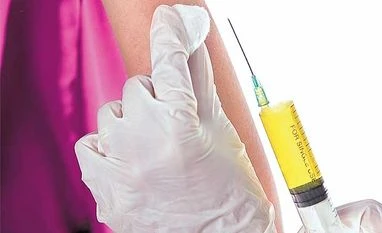"Our vaccine has not yet been launched, but it is likely to be in the first quarter of 2017," said Adar Poonawala, executive director and chief executive officer (CEO), Serum Institute of India, told Business Standard.
The clinical trials conducted on this vaccine were for both the routes -- intradermal (applied within layers for skin) as well as intramuscular (administered directly to muscle). The World Health Organisation in 2010 had recommended the intradermal route, as the number of grams of vaccine consumed this way is significantly less, reducing the price by at least 60 per cent.
"Serum Institute's rabies vaccine is probably the only vaccine which is clinically compared in the same trial -- the intramuscular and intradermal dose. The institute has shown in this trial that the vaccine works with the same efficacy under both, intradermal and intramuscular route. This would offer substantial reduction in the administration cost of rabies vaccine in public hospitals," said Poonawala.
The prices of rabies vaccine are controlled by the government and are around Rs 300 per dose at present. The company's vaccine, if applied through skin, is expected to cost the patient just a tenth of the price of the muscular dose. So, if the intramuscular dose costs Rs 320, the dermal version would cost just Rs 32.
"We expect around Rs 50-75 crore business in next two years," said Poonawala. The vaccine received its marketing authorisation from the CDSCO last month. The total market size of rabies vaccines in India is currently estimated to be Rs 200 crore.
There are a few other rabies vaccines in the market, from other companies, that can be used by both the routes. However, when they were first launched in the market, they were tested for intramuscular route only. Later, when the focus shifted to intra-dermal after WHO recommendations, they conducted clinical trials for this route and launched the same vaccine for it.
)